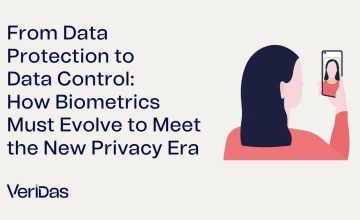The problem of financial inclusion
Financial inclusion is a severe problem in developing countries. The lack of financial infrastructure does not allow economic progress, as the financing mechanisms are far removed from the social reality and the grassroots economy.
The good news is that accelerated digitization (in the form of mobile communications and smartphones) is laying the rails for the banking system even earlier, in many cases, than the physical rails for the trains. This accelerated reality of digitization and access to financial services will abound in business creation, economic growth and wealth.
In countries with a very high level of financial inclusion, such as Spain, with 95% of the population having a bank account (according to the latest excellent report by the Spanish consultancy AFI), there is, however, an opposing current of opinion regarding digitalization, about how it affects the elderly.
Digitization of banking
The digitalization of Spanish banking (which has always been, and continues to be, at the forefront worldwide), where many of the services are derived from a digital self-service, making physical offices redundant, is affecting a part of the population less attuned to new technologies, or even being well trained at the time, with health problems (vision, Alzheimer’s, etc.) that prevent them from that fluid relationship with their financial institutions.
User experience, also designed for our seniors, should be necessary when developing technologies. The best example is Whatsapp and its massive use, where we have all been able to see how the elderly have become familiar with its use and master it as well, or better, than a millennial.
Identity verification with biometrics
On that path, Biometrics and Identity Verification technologies, which are the first gateway to digital transformation, play a vital role in that inclusion.
Two examples:
1/ Proof of life of pensioners in Mexico
The incorporation of voice biometrics technologies (independent of the text, language and in 3 seconds) allows pensioners in Mexico, without the need for a smartphone (social inclusion) to accredit that they are alive to receive their pension, avoiding trips to the office (bonus: reduction of pollution), time and inconvenience in a segment of the population that in many occasions do not have autonomy, nor the means to do it by themselves. The system even works with dialects of the language without adaptations. In the following interview we had with Cynthia Méndez, Director of Pension Management at BBVA Mexico, she explains how grateful customers are, that their lives are more accessible, and that, in short, they are being thought of. It should be noted that the entity also achieves objectives such as reducing costs in customer service and increasing security in the process.
2/ Access to facilities with facial biometrics
People access through an automatic system that recognizes them for who they are (with their facial biometrics) in a voluntary, private and secure way.
In this TV report, testimonials are collected (all of them from older adults), showing their acceptance and advantages. This technology has also been deployed in corporate facilities to manage the access of employees, visitors and also for logistics services, always with the guarantee of having technologies (hardware and software) developed entirely in Spain, accredited by the NIST in the USA, being among the best in the world in their performance and privacy, and its minimum bias by age, gender and race.
In technology, like almost everything in this life, there are no blacks or whites, but greys and shades, but those of us who are at the forefront of its development must be sensitive to the positive and negative effects it can have, and think about the best way we can make it available to the entire population, respecting their rights and being sensitive to their strengths and limitations, which will be ours, if life smiles on us, in a few years.








